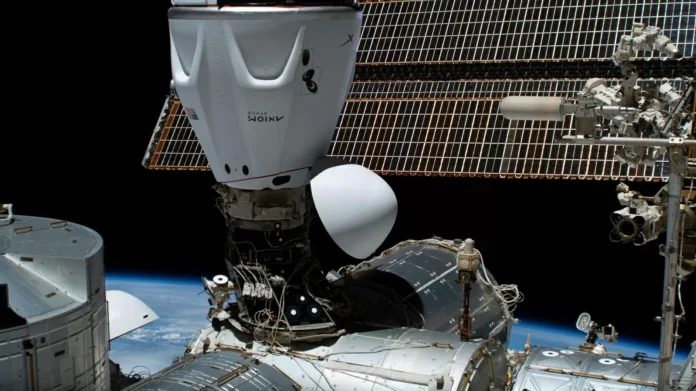Astronauts from Hungary and Poland will soon make history by flying alongside an Indian astronaut on Axiom Space’s upcoming private mission to the International Space Station (ISS). This development marks a significant milestone in the global space industry, as it brings together astronauts from different countries to work together towards a common goal.
The announcement was made by Axiom Space, a Houston-based company that specializes in space tourism and commercial spaceflight. The mission, called Ax-4, is set to take off in the second half of 2022 and will be the fourth private astronaut mission to the ISS organized by Axiom Space. This mission will also be the first to include astronauts from Hungary and Poland, making it a truly international collaboration.
The Hungarian astronaut, Dr. Zsófia Reka Mádl, is a renowned physicist and a former member of the Hungarian Parliament. She will be joined by the Polish astronaut, Colonel Mirosław Hermaszewski, who is a veteran of the Soviet space program and the first Polish citizen to travel to space. The Indian astronaut, whose identity has not yet been revealed, will also be making history as the first Indian to travel to the ISS on a private mission.
This collaboration between Hungary, Poland, and India is a testament to the growing interest and investment in space exploration in these countries. It also highlights the importance of international cooperation and collaboration in the space industry. By bringing together astronauts from different countries, Ax-4 will not only promote cultural exchange but also foster scientific and technological advancements.
The inclusion of Hungarian and Polish astronauts in Ax-4 is a significant step towards making space more accessible and inclusive. It sends a powerful message that space exploration is not limited to a select few nations, but rather a global endeavor that can be achieved through unity and cooperation. This mission will also inspire young people from these countries to pursue careers in science, technology, engineering, and mathematics (STEM) and perhaps even aspire to become astronauts themselves.
The Ax-4 mission will be a 10-day trip to the ISS, where the astronauts will carry out various scientific experiments, spacewalks, and other activities. They will also have the opportunity to interact with the current ISS crew and gain valuable insights and experience from their time in space. This mission will not only be a dream come true for the astronauts but also a significant step towards commercializing space travel and making it more accessible to the general public.
Axiom Space has been at the forefront of the private spaceflight industry, with its aim to make space more accessible and affordable for everyone. The company has already successfully completed three private astronaut missions to the ISS, with Ax-1 set to launch later this year. With the inclusion of astronauts from Hungary and Poland, Ax-4 will further expand Axiom’s reach and impact in the global space industry.
The news of Hungary and Poland joining India on Ax-4 has been met with excitement and enthusiasm by space enthusiasts and professionals alike. It has also received positive reactions from the governments of these countries, with the Hungarian Minister of Foreign Affairs and Trade, Péter Szijjártó, stating that this collaboration is a testament to the strong and friendly relationship between Hungary and India.
In addition to the scientific and technological advancements, the Ax-4 mission will also have a significant economic impact. It will create new job opportunities and drive economic growth in the participating countries. It will also attract more investors and companies to enter the space industry, leading to further innovation and progress.
In conclusion, the inclusion of astronauts from Hungary and Poland on Axiom Space’s Ax-4 mission is a significant achievement for the global space industry. It showcases the power of international cooperation and collaboration in achieving common goals and pushing the boundaries of human exploration. This mission will not only make history but also inspire future generations to reach for the stars and explore the wonders of space.

